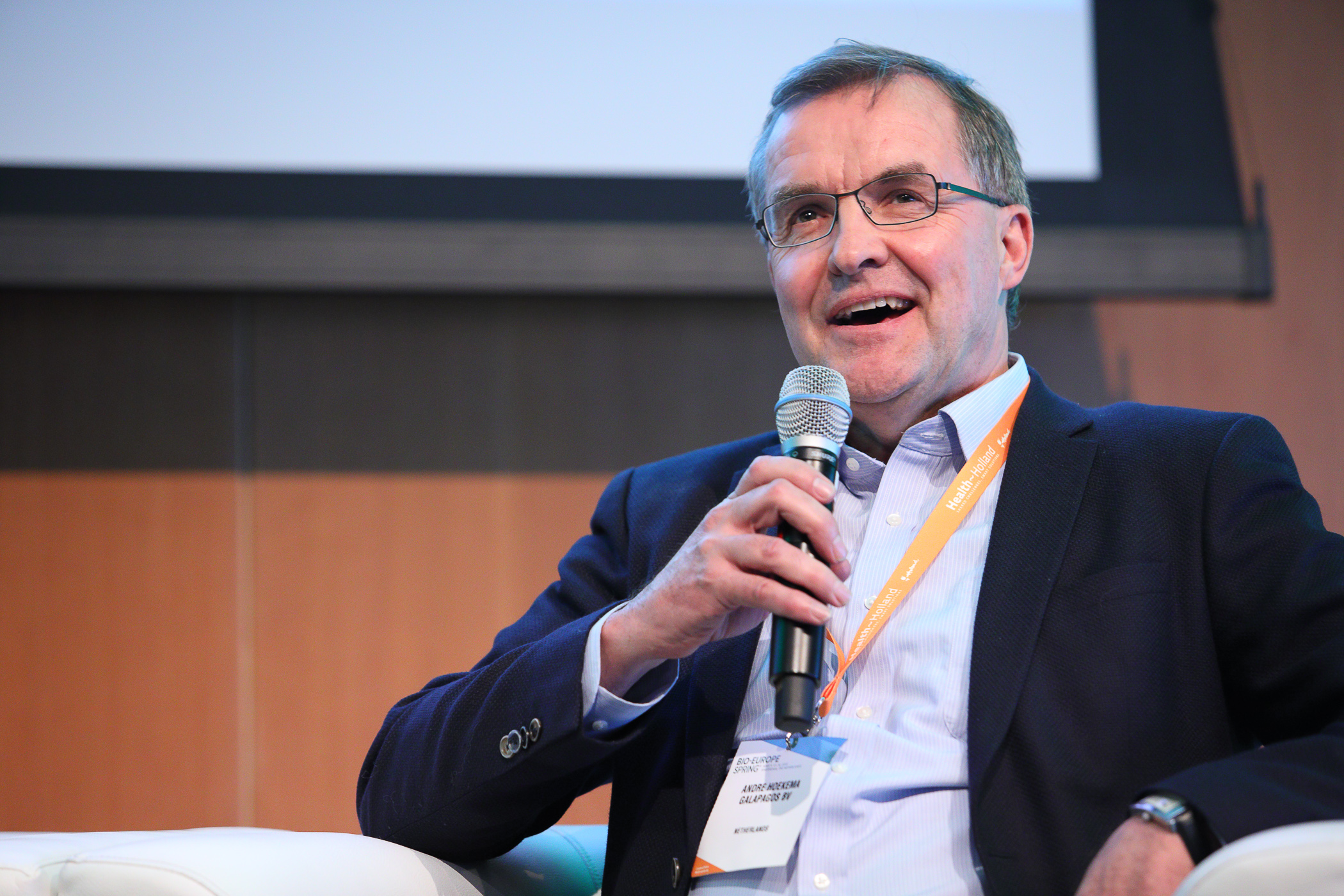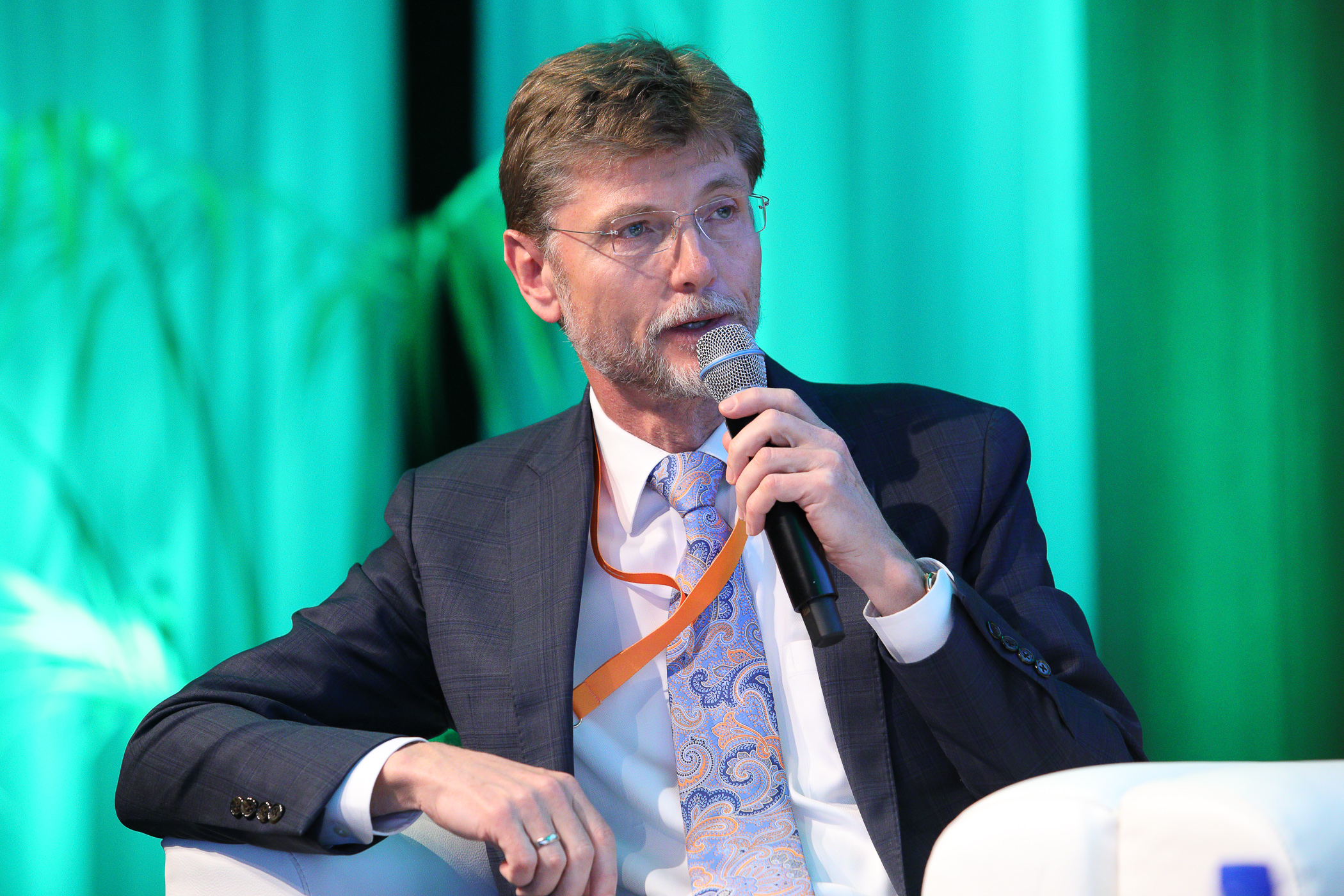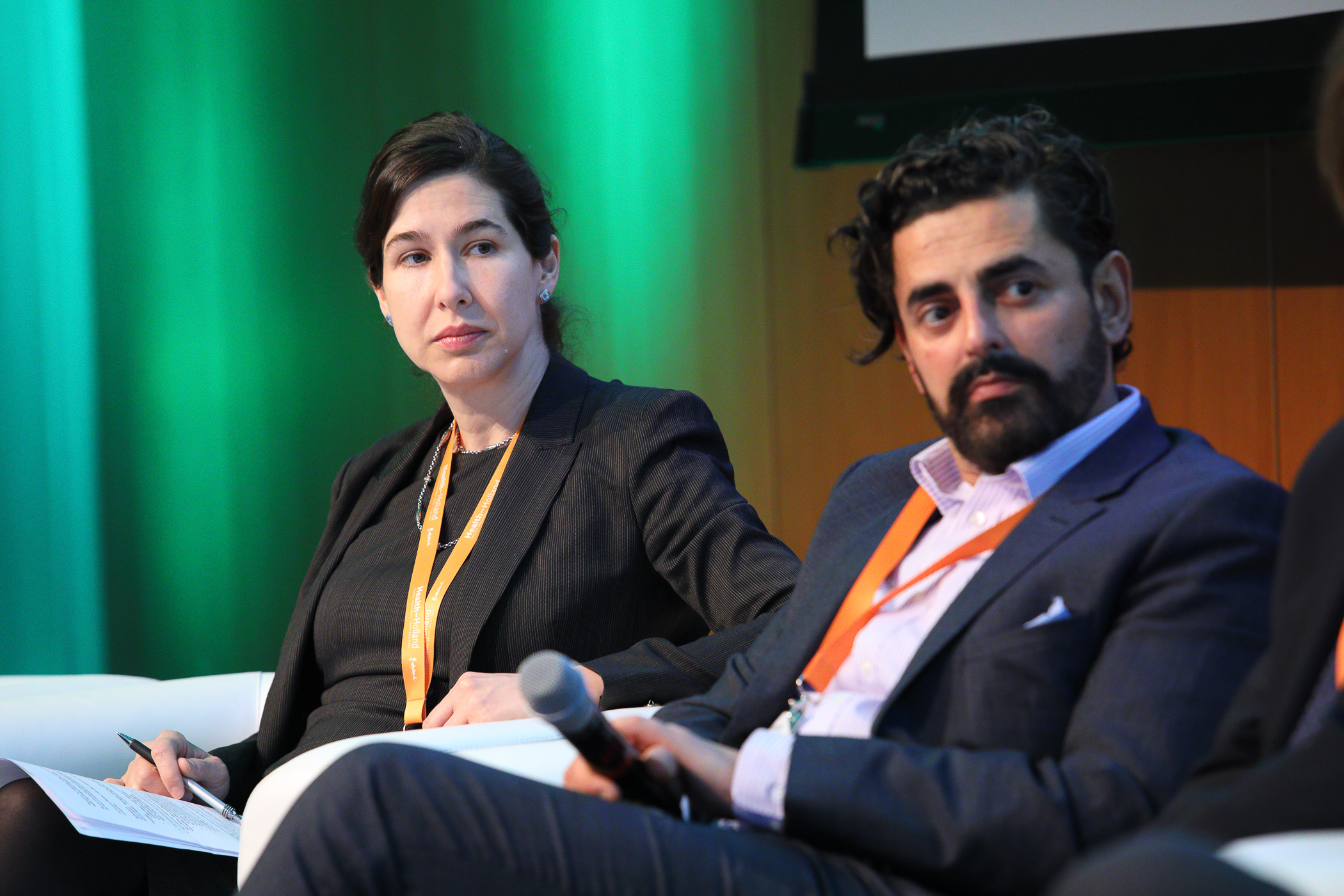Breaking up with big pharma is hard to do, but may be profitable

Failure is not an option that people like to talk about when making a deal to collaborate on a drug development program. Yet considering the abysmal success rate in the biopharma industry, it should be at the top of everyone's agenda.
"Breaking up can be beneficial if you have thought it through," said Anton Gueth from Evolution Life Science Partners, who co-hosted a plenary panel session at BIO-Europe Spring® 2018 where unexpectedly the subject came up and took over the discussion.
Traditionally the signature session in the BIO-Europe program, "A Day in the Life of Experienced Dealmakers," is dedicated to blockbuster deals and stand-out successes of the year.
Yet when the Chief Business Officer for Galapagos, Andre Hoekema, said he successfully partnered the same molecule three times, co-host Evonne Sepsis from ESC Advisors asked him to share the story.
"This is very relevant to many of the people in this room," she suggested. It turned out that the other experienced dealmakers on the panel also had a tale to tell about terminated programs and the lessons learned to share with business development people attending the session.
Galapagos is a target discovery company that in 2006 was poorly financed after a less than stellar IPO in Amsterdam, according to Hoekema.
 "There were a couple programs in early discovery and we wanted to bring one forward into the clinic, though we did not have either the skills or the money. We were lucky enough to sign our first deal with GSK for a JAK inhibitor for rheumatoid arthritis. It was an option deal with milestones along the way. The program developed well but when we were ready to go to the clinic, GSK declined to take the option," he said.
"There were a couple programs in early discovery and we wanted to bring one forward into the clinic, though we did not have either the skills or the money. We were lucky enough to sign our first deal with GSK for a JAK inhibitor for rheumatoid arthritis. It was an option deal with milestones along the way. The program developed well but when we were ready to go to the clinic, GSK declined to take the option," he said.
"This put us back to square one with no prospects for further income and no partner to bring the molecule forward. And here is the first important lesson learned for every biotech company. When you do a deal, make sure there is a clause that says the molecule comes back to you unencumbered.
"That saved us, though we now had a difficult time to convince our own board to continue. We had just enough money to complete the Phase I and a 24-patient proof-of-concept study. This was successful, the data led to a publication, and 10 pharma companies approached us! We had 10 term sheets on the table to choose from. And the deal value went up enormously.
"Here is the second lesson for biotechs: the longer you can wait, the greater the value. "We signed with AbbVie for a much larger upfront and a deal 30 times greater than we had with GSK. Now we thought we are finally there with the market leader in arthritis. Surely our product will be their follow-on. We finished the Phase II with good results in Sept 2015, sure that Abbott would license the molecule. They did not and they gave it back, thanks again to that clause in the contract.
"We now went through the same difficulties to arrive at a third partnering agreement, this time with Gilead. The molecule was Phase III ready, so the deal value went up again. We are pleased now to be advanced in large Phase III studies and hope to bring it to market in two years time."
Here, Hoekema said, is the third lesson for partnering assets, "The difference between success and failure is really razor thin. We almost gave up.
"I could write a book on why pharma quits partnerships," he added. "We signed 15 partnership agreements and 10 were terminated, all for different reasons!"
Hakan Goker with Merck Ventures agreed that "it is always challenging when pharma stops a program. It is a big machine with a lot of experts who can analyze something to death before they decide whether to go forward or not. Pharma gives things up for multiple reasons. The machinations of such organizations are quite complex. Things fall out despite how exciting they look. As long as there is a very clear explanation behind why they are letting go of a compound, it should not be difficult to raise new financing, especially if it is first-in-class or best-in-class."
Goker suggested that the fact the pharma company put money into a program in the first place gives a boost to confidence in a program for people in the biopharma ecosystem.
According to Lubor Gaal, who leads External Innovation and Licensing for Almirall, "The critical part in partnering is to insure that what is in the contract will really happen, and then what does it mean if it does not happen.
"What is really difficult is that while you are happy to have found someone you want to collaborate with, how do you talk about what happens if things do not go so well? How do you break up, terminate? It is like getting married and talking about how you will get divorced. This can be a challenge," he said.
"And then, you need to ask if you forgot about something. If it is your first contract, you need to think about what you left on the table. Be patient, because when you are in a rush, you may be leaving something on the table," he said.
"There is no perfect contract," he continued. "In the end it is the parties to the contract that make it happen. If you have to work according to the contract, things are probably not going to work anyway. It is about getting a partner with the right vision, that you see eye-to-eye, that you speak the same language, that you believe in the same potential. Then things will work."
Finally, he said, "the biggest problem when a program terminates is not whether they return the rights to you but to get the data back from them. This becomes critical. Once a pharma has lost interest in your program, it becomes very difficult to get ahold of things from these big organizations."
Moderator Gueth with Evolution Life Science suggested, "It's all in the perspective of when a failure is not a failure. And in this industry, when something does not work, you learn something every time, which adds to the knowledge about the compound. Yes, you have some explaining to do about why the first partner walked away. But look at the bright side, if there is nothing wrong with the molecule per se, then the explanation often is that something happened on the other side."
The noon plenary included Evonne Sepsis from ESC Advisors; Anton Gueth, Evolution Life Science Partners; Lubor Gaal, Almirall; Hakan Goker from Merck Ventures; Andre Hoekema at Galapagos; and Jonathan Wang, VP and Head of BD at Zai Lab.

